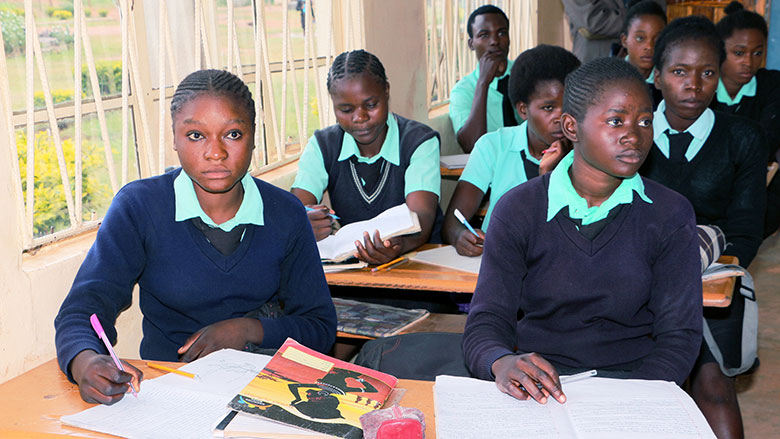With $65 million in IDA financing from the World Bank, GEWEL is supporting Zambian government efforts to achieve inclusive growth by addressing the dual challenges of poverty and gender inequality. Compared to males, Zambian females are more likely to leave school during adolescence and are more likely to farm at subsistence levels—both strongly correlated with low earnings.
Changing this reality would have a transformative impact on not only girls and women but also on their families, and on Zambia’s efforts to build human capital and boost long-term economic growth.
Encouraging continued education
For Sichone’s father, the support is well-timed: he had no means to pay school tuition after losing his business. “The bursary is very helpful for us struggling parents because it helps us pay the school’s fees. Without this help my daughter would have not managed to stay in school,” he says. His wife recently left him, adding to his sorrows.
The cost of secondary education is prohibitive for Zambia’s poorest families, hindering attendance. Primary education is tuition-free, but secondary school requires not only passing a national exam but paying for school as well.
Between 2002 and 2010, most of the girls who dropped out of school said it was for lack of financial support, according to Zambia’s Living Condition Monitoring Survey (2010).
Minister of Gender, Victoria Kalima, points to compelling evidence on the benefits of staying in school longer. “Research shows that better educated women tend to be healthier, to participate more in the formal labor market, earn more, give birth to fewer children, marry at a later age, and provide better health care and education to their own children,” she says.
From subsistence to sustainable livelihoods
GEWEL also empowers women, aged 19 to 64 and mostly mothers, with basic business training and life skills that can help them turn piecemeal work into viable microenterprises and reduce their poverty levels.
The Supporting Women’s Livelihoods program combines “life skills and simple business skills training, productivity grants, access to savings, and mentoring and peer support,” says Minister of Community Development and Social Services, Emmerine Kabanshi.
In the first year of implementation, GEWEL reached over 21,000 extremely poor girls and women. By 2020, the project aims to scale up to almost 100,000 girls and women in half of the districts nationwide.

